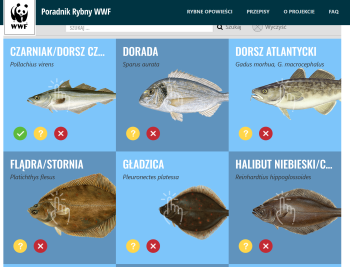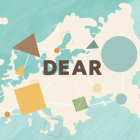
From the Plate to the Planet
The way we produce and consume food is unsustainable and harmful. The legislative framework for sustainable food systems (FSFS) is one of the flagship initiatives of the EU’s “Farm to Fork Strategy”. While EU policies help regulate food production, DEAR projects offer an array of practical tools to move from unsustainable diets to a better, fairer, cleaner world.
Through global and local movements that promote sustainable consumption, we can bend the curve on the negative impacts of the food system, moving from exploiting to restoring nature. They include education tools as well as practical guides for consumers.
“Our Food. Our Future”, offers a comprehensive explainer on the real cost of food. Its research has shown how and why the actual cost of the food we consume exceeds the price we pay at the supermarket.
The DEAR-funded interactive website tells the real story behind “our broken food system.” The ‘scrollytelling’ experience shows how our food is produced at tremendous costs to communities, habitats and consumers.
The tool also explores and highlights that we consume our food in ways that harm us all. It highlights poverty across the globe: over 415 million people in Asia and almost 282 million in Africa suffering from hunger. Even “rich” continents such as North America are not immune, with 19 million people not getting sufficient food to feed themselves, and many others suffering from malnutrition.
The interactive website also includes a game and remains extremely useful for teachers - even after the project has concluded. It presents further references and links - for current data and practical guides.
Today and for the future, DEAR-funded “Our Food. Our Future” offers free support for active citizens to get involved - individually and/or collectively - and to help fix the food system.
“Eat4Change'' guides consumers, young people, and influencers to help reduce the negative impacts of unsustainable diets. The project resources are all about how everyone can make simple, small changes to how they eat - without too many restrictions and without breaking the bank.
“Make some simple swaps in your meals a couple times a week. If you can, why not challenge yourself to cut out meat for a month? Ease into it and find what works for you. Including more veg in your diet that is full of protein and fibre is a great place to start. [...] Did you know? You can cut down your food bill by up to a third by adopting a more plant-based lifestyle.” See the Food Guide
The Foodprint Tool helps teachers, students and life-long learners to understand how our diets can help protect nature. It enables users to compare personal eating habits to a model “Net Zero” diet. It works with three sample diet models and offers concrete ideas and tips to change personal and community’s food habits.
Finally, “Fish Forward” focused on the sustainability of fish consumption and offers a very practical tool to European fish and seafood consumers.
The oceans, in fact, bear increasing pressure from overfishing, illegal or unsustainable practices in the fishing industry. While policies set internationally-recognised standards for fisheries environmental performance, consumers can also do their part.
A guide to fish shopping is available in a dozen EU languages as well as Turkish to encourage and empower consumers to make the right choice buying seafood.
The online interactive tool rests on a three-tier labelling system where most fish and seafood products are searchable. The search results in simple information about which ones can be bought with minimum harm to the environment, which ones should only be used in the absence of alternatives, and which are a definite no-go when it comes to sustainability.
The top tips to guide our seafood shopping include:
- Buy certified fish products: for example, MSC (Marine Stewardship Council) is the ecolabel that certifies fish caught according to sustainability criteria; while ASC (Aquaculture Stewardship Council) is the ecolabel that certifies fish bred fish according to sustainability criteria.
- Eat only adult fish: a fish that is too young has not yet had time to reproduce. Ask your fishmonger to check that you are purchasing adult fish. By doing so, you will help replenish fish resources.
- Choose local produce: in the Mediterranean it is important to choose "zero mile" artisanal fishing products.
- Taste diversity: diversifying the fish you consume ensures a more balanced pressure on marine resources, which helps maintain biodiversity, which in turn makes marine ecosystems stronger.
Check the origin on the label: in the EU, it is your legal right to know the full name of the fish you are buying, where it comes from, whether it was caught and farmed, whether it is fresh or thawed. If you don't have this information, ask. If you don't get a response, don't buy the product.






Log in with your EU Login account to post or comment on the platform.